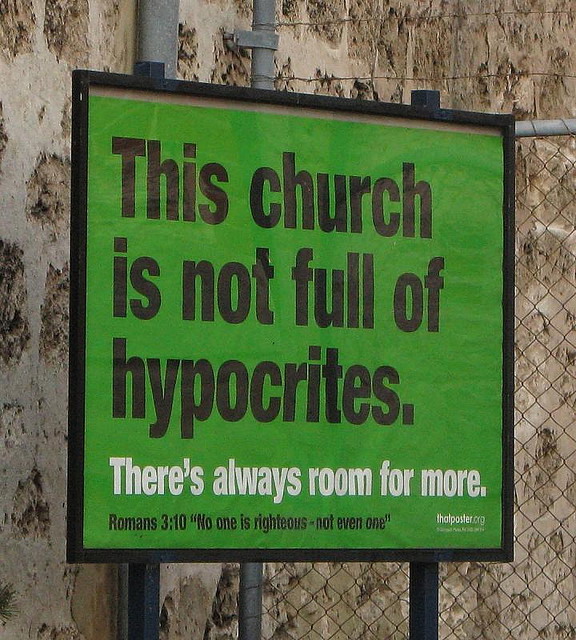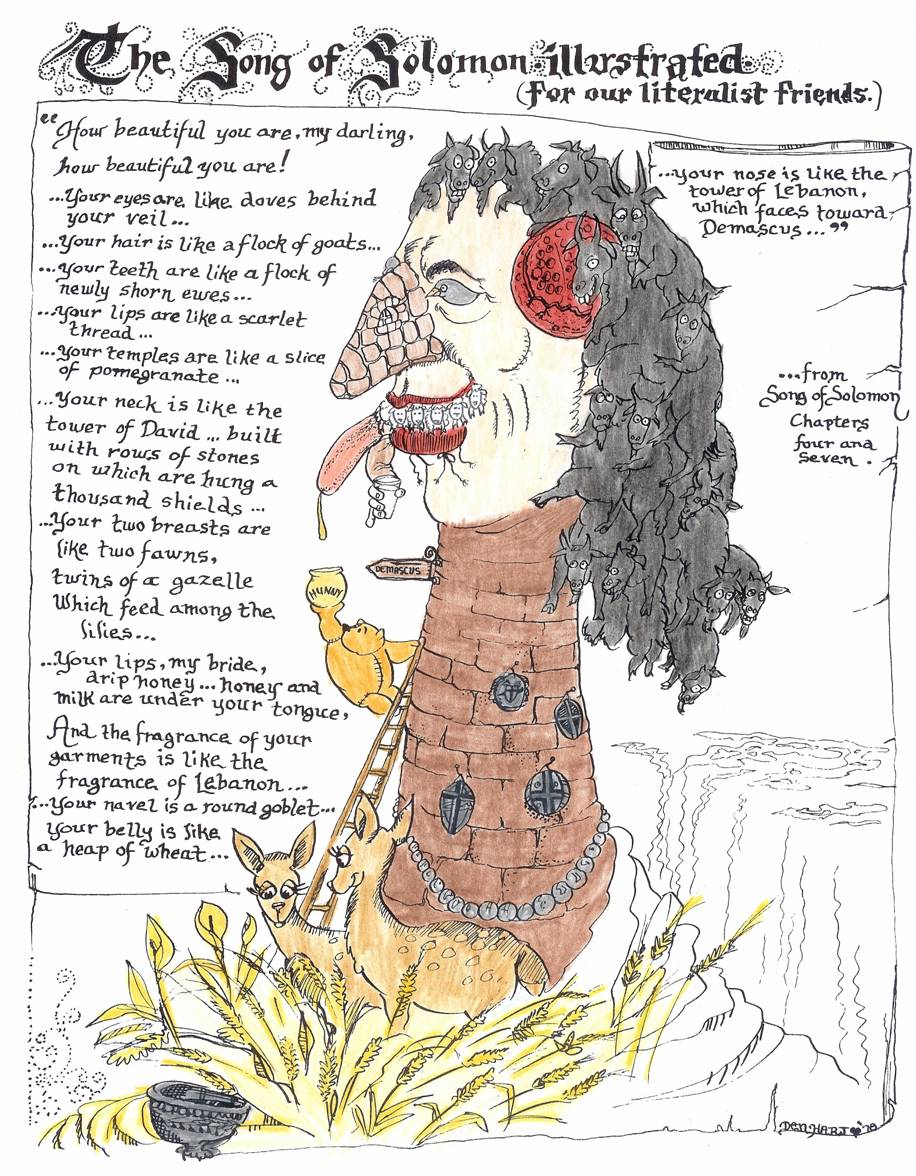A Mary the mother
of Jesus was a prophet.
Like Isaiah and Micah and Amos and
Habakkuk.
Let’s dig into that for just a
moment.
There in Luke is a great example of
what we call an annunciation form—
basically, there are bits of
scripture
that are very similar to each other,
things like the traditional form of a
pastoral letter,
or love poems, or proverbs,
or the form of announcing a
miraculous birth.
You remember Abraham and Sarah
and their miraculous, late-in-life
birth, right?
Or Hannah mother of the prophet
Samuel?
Their stories, when the angels or God
visit
and tell them of their impending
pregnancy,
generally follow a particular form.
Interestingly, while Mary’s story is
indeed
a birth announcement and fits that
form,
it actually fits a different form
much more closely
—the prophetic call.
Like Moses, Gideon, Isaiah, Jeremiah,
and Ezekiel before her,
Mary encounters an angel
who calls her to some sort of
difficult action,
Mary objects to the call,
she is reassured and given a sign.
B It turns out
lots of early church writers saw this well before I did,
but it’s an image of Mary that we’ve
lost over the years
—somehow we are left with a quiet,
obedient Mother
without the firebrand language of the
Magnificat
she sings immediately afterwards.
She sings about God’s greatness and
mercy
but she also sings this,
“He has shown strength with
his arm;
he has scattered the proud in the
thoughts of their hearts.
He has brought down the powerful from
their thrones,
and lifted up the lowly;
he has filled the hungry with
good things,
and sent the rich away empty.”
It’s reminiscent of the song of Moses
and of basically all of the Hebrew
prophets.
God is indeed great and merciful
AND ALSO is about justice and
significant change to the status quo.
If you’re poor or afflicted, you’re
gonna get fed.
Also, if you’re comfortable or in
power,
you’re gonna get taken down a peg or
two.
Prophets, you see, are a bit
difficult.
They’re not domesticated.
They speak from their own oppressed
group.
They speak the languages of challenge
and hope.
Prophets, Mary included, see clearly
what is,
the patterns of human behavior
and how we consistently screw things
up.
And prophets, Mary included, see what
can be,
the potential for beauty and
compassion and grace.
Prophets, Mary included, speak to
their own oppressed people
and say, “This is terrible but it
won’t last.
If it’s not okay, it’s not the end.”
It’s good news, but it might not seem
like it.
C Pastor Larry and
I used to argue this point.
He’d say, “Good news is always good
news.”
Being contrary, I’d say, “No it’s
not.”
The word “Gospel” literally means
“good news”
and I agree that it is in fact always
good.
BUT it doesn’t always feel like it.
That the rich—spoiler warning, that’s
us
—that the rich will be sent away
empty sounds like a threat.
That the proud—spoiler warning,
that’s also us
—will be scattered sounds like bad
news.
This is the Gospel which says you
lose your life to find it
and that’s damned hard. That’s
miserable. I don’t want that.
The leveling of the playing field
that Mary sings about
and that Isaiah writes about and that
all the prophets
and law-givers and poets of our
scriptures talk about
—that leveling means we might all
lose something
and we will all gain something even
better.
Past that loss of wealth or status or
security,
past
Good Friday, past the pain of pregnancy and childbirth
is the New Thing that God is making.
Mary says to us,
“This is terrible but it won’t last.
If it’s not okay, it’s not the end.”
“When a
person in a marginalized group is voicing their concern over something you’ve
done, it’s a natural reaction to jump and try to defend yourself. Taking the
time to listen and truly understand goes an incredibly long way to promoting
the understanding that is so desperately needed...”[1]
As we continue in this Advent season,
as we wait for something new with
increasing agitation,
when every one of us is pregnant with
possibility,
I invite you to listen to Mary’s
story retold.
D Mary stands in
her home, kneading bread for dinner
and looking absently out the window.
She sees her little son Jesus running
around with the neighbor kids
playing chase and she corrects
herself
—not little son, not any more, was he
ever little,
seemed pretty big when he came out,
where has the time gone.
Mary watches as her son stops to help
up one of the smaller children
who’s fallen in the dust,
then takes off like a shot around the
corner of another house
and the Roman soldier keeping an eye
on their neighborhood.
Mary presses down hard with the heel of her hand into the
dough,
flips it over, presses again,
the repetitive motion part frustration
and part meditation.
Her thoughts drift gently from her
son’s momentary kindness
to his tantrum this morning about
breakfast
to his sleeping face last night
to that same face, softer, rounder,
more covered with snot,
lo, these many years ago.
Mary remembers swaddling her baby boy
in that warm, dirty stable
and weeping with joy and terror at
this new thing
—why didn’t anyone say, I can’t
believe how amazing he is,
Joseph can you even…, how could I
love someone this much.
And she remembers the day of the
angel with the same joy and terror
—how can you be so beautiful and so
frightening,
of course I’m afraid, you want me to
do what,
from…Hashem, but…a baby?
Mary’s hands press down hard into the dough,
flipping it over, pressing it again.
Her hands covered in flour and
callouses ache
as she remembers the early days of
pregnancy
—the painful joints, the exhaustion,
the fluttering in her belly which she
kept thinking was the baby
but which was only gas.
And later when the fluttering took
her breath away
and she grabbed for Joseph’s hand to
feel the tiny elbow pressing up
against her belly.
Once she remembers that elbow coming
up and her pushing it back,
tapping it like a message. And the
elbow tapping back.
She smiles as she flips the dough
over to let it rest
and wipes her hands on the towel at
her waist.
Out of the corner of her eye, she sees Jesus and his friends
run helter-skelter back into sight.
She begins to hum as she takes out a
knife to cut up garlic.
It’s a song she’d all but forgotten,
but in the quiet of a rare moment alone,
she remembers.
“My soul magnifies the Lord,
and my spirit rejoices in God my
savior.”
Ah, yes, she thinks, and sighs aloud.
How that song had welled up in her
that day in cousin Elizabeth’s house.
They were both pregnant,
commiserating about aches and pains
and husbands who were attentive but
in the wrong ways.
They talked of swaddling and
breastfeeding
and the births they’d been present
for.
They talked about how the world
wasn’t good enough for their sons,
hands resting protectively on round
bellies.
They talked about their awe
that they could be making people
within themselves.
They talked about their awe that
Hashem had given them this chance,
that maybe their boys would be the ones to change things.
And Mary began to sing her gratitude.
It was an old tune but the words came
from deep within her,
from the knot of baby growing in her
belly and in her heart.
She sang about her own unworthiness
to be a mother
and how overwhelmingly giddy it made
her.
She sang about Hashem’s attentiveness
to the people with no power
and about Hashem’s power to remake the
world.
She sang about justice and regime
change and transformation.
She sang about her sadness
and she sang about her hope that all
would see the face of Hashem
and know the truth of their sin and
blessedness.
In the end, a breathless silence
and then cousin Elizabeth applauded
and called her Prophetess
and they laughed.
Mary begins chopping the cloves of peeled garlic
piled up like coins in front of her
and hums.
This child will change everything, she sings.
This child has already changed everything.
[1] Jessica Lachenal, “Why the Batgirl #37 controversy is
the conversation we need right now.” www.themarysue.com
12/15/14 6:30pm



